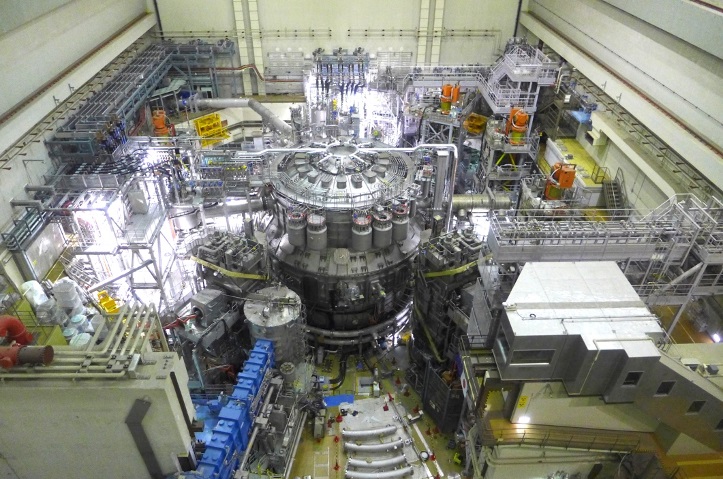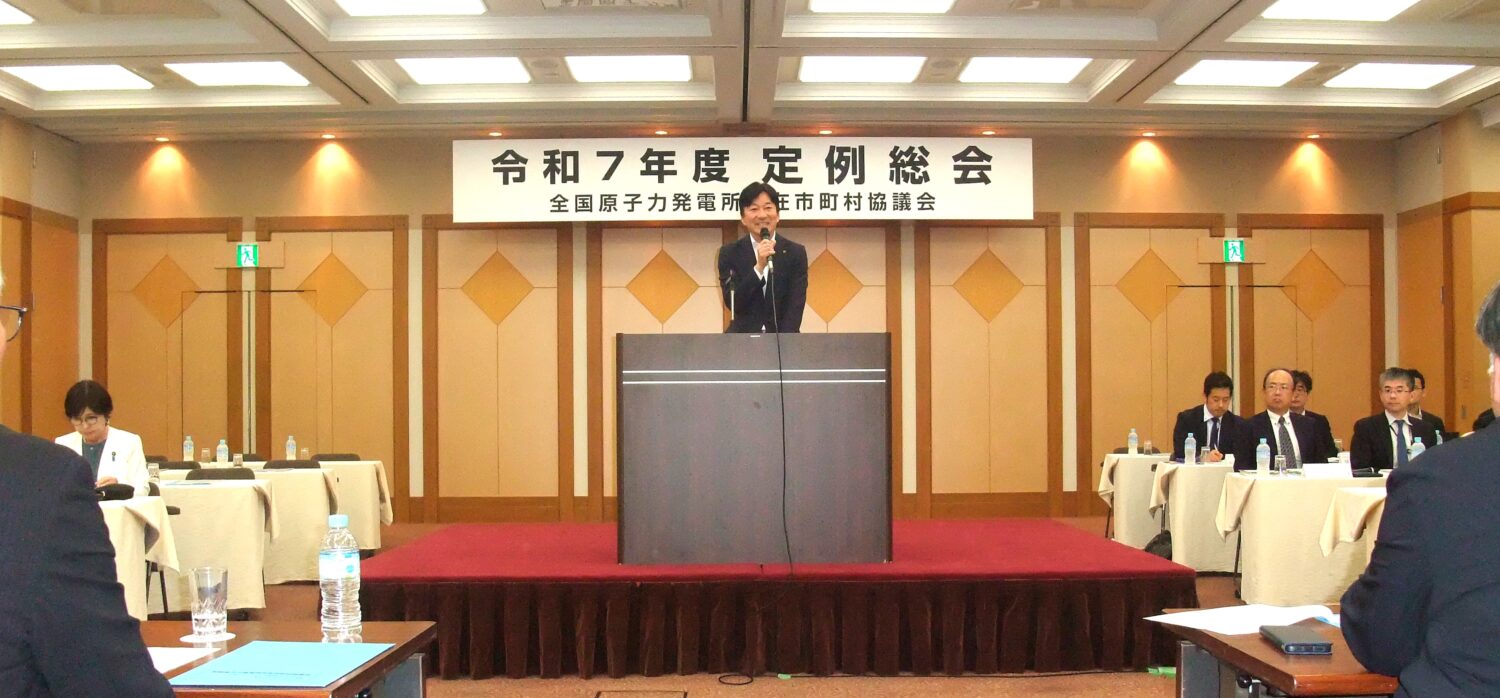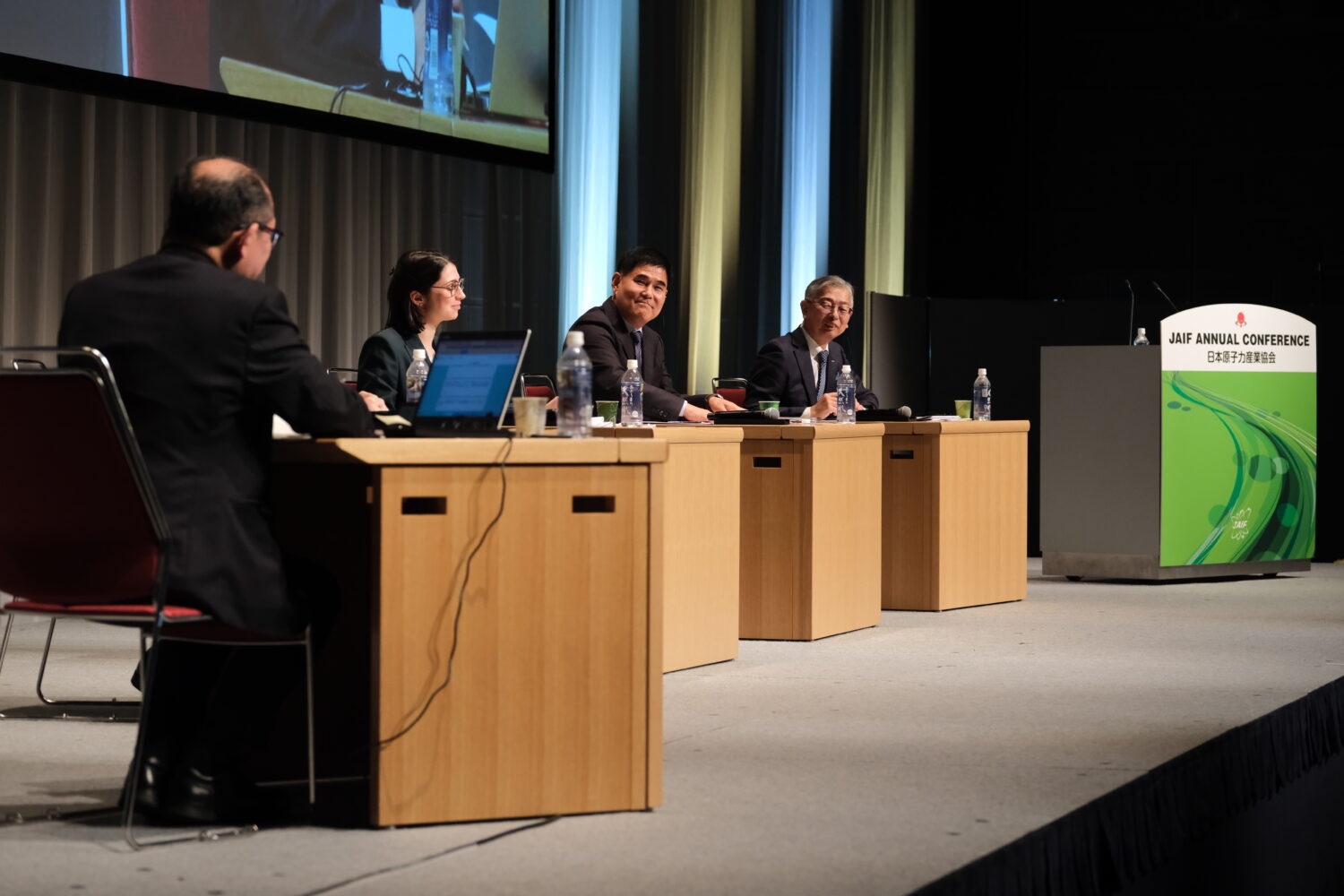At the meeting, NISHIMURA Yasutoshi, Minister of Economy, Trade and Industry , the government official in charge of GX implementation, talked about reestablishing stable supplies of energy in Japan. He also identified issues in the global energy situation and the stagnation of the country’s energy policy.
As for nuclear energy policy, the minister said that the government would compile measures in the fall to accelerate restarts of nuclear power plants (NPPs) through public-private cooperation, noting the 2030 CO2 emissions target.
At the previous meeting of the council on July 27, Prime Minister Kishida had instructed that those items requiring political decisions be clearly identified, toward the achievement of stable supplies of electricity and gas.
At the second meeting, METI Minister Nishimura presented the following points related to nuclear policy:
・ Integrating the influence and capabilities of all relevant parties to facilitate NPP restarts.
・ Extending operating lifetimes, with top priority on safety.
・ Considering the development and construction of next-generation advanced reactors.
・ Speeding up the processes of reprocessing, decommissioning and final disposal, and more.
In connection with the acceleration of NPP restarts, efforts will be made to shorten the periods for safety-measures work and adjust periodic inspection schedules to enhance capacity factors. That should ensure operation this coming winter of up to nine of the ten NPPs that have already been restarted.
In summer 2023 and the subsequent, work on safety measures will be smoothly implemented at Takahama-1 and -2, Onagawa-2 and Shimane-2, among the further seven NPPs that have cleared safety examinations under the new regulatory standards. Also, the government will be at the fore in carrying out activities to obtain understanding from local communities at Kashiwazaki Kariwa-6 and -7, and Tokai-2.
Additionally, with an eye on developments occurring even ahead of those NPP restarts, the government will present specifics by the end of this year with regard to the development and construction of next-generation advanced reactors, and the extensions of operating lifetimes.
During deliberations on August 24, Prime Minister Kishida emphatically declared, “In order to get through the imminent crisis of excess power demand, the government—eyeing not only on this winter but several years ahead—will cover all the bases and deploy every measure in anticipation of every contingency.” Reiterating that renewable energies and nuclear energy “are vital decarbonization energies for promoting GX,” he said that the government would speed up work on system designs and measures related to national understanding.
As for the political underpinnings of nuclear policy, the Special Committee on Nuclear Regulations of the Liberal Democratic Party (LDP), chaired by SUZUKI Junji, member of the House of Representatives, prepared a proposal in May. Given the protraction of NPP suspension periods in association with safety examinations by the Nuclear Regulation Authority of Japan (NRA), the proposal included a provision that the 40-year operation limit of NPPs be reconsidered, together with improvements to examination efficiency.
Meanwhile, at an August 25 meeting of the Nuclear Energy Subcommittee under the Advisory Committee for Natural Resources and Energy, the subcommittee president, Governor SUGIMOTO Tatsuji of Fukui Prefecture, referred to “items requiring political decisions” presented at the GX Implementation Council the previous day, and said that he had evaluated them from the viewpoint of a siting area. He then added that he expected that the government would present a clear future picture for nuclear energy.
A subcommittee member, YAMASHITA Yukari, director of the Institute of Energy Economics, Japan (IEEJ), praised the acceleration of NPP restarts, saying that they were important to “secure short-term power supplies and present a clear energy policy toward 2030.” Regarding back-end measures and the nuclear fuel cycle, she pointed out that the government would “come to the fore and reconfirm its long-term policy.”
The Nuclear Energy Subcommittee consolidated a five-item draft interim summary report—also worked on at its previous meeting on August 9—including “a reaffirmation of ‘basic principles’ on development and the utilization of nuclear energy.
JAIF President ARAI Shiro, who was attending the meeting as a special member, said that reconfirming the value of nuclear energy was important for the sake of “stability of policy.” Expressing his concerns about manufacturing infrastructure and the maintenance of supply chains from the perspective of ensuring predictability in nuclear businesses and industrial competitiveness, however, he stressed the importance of swiftly restarting suspended NPPs and resuming NPP construction.







-013.jpg)



